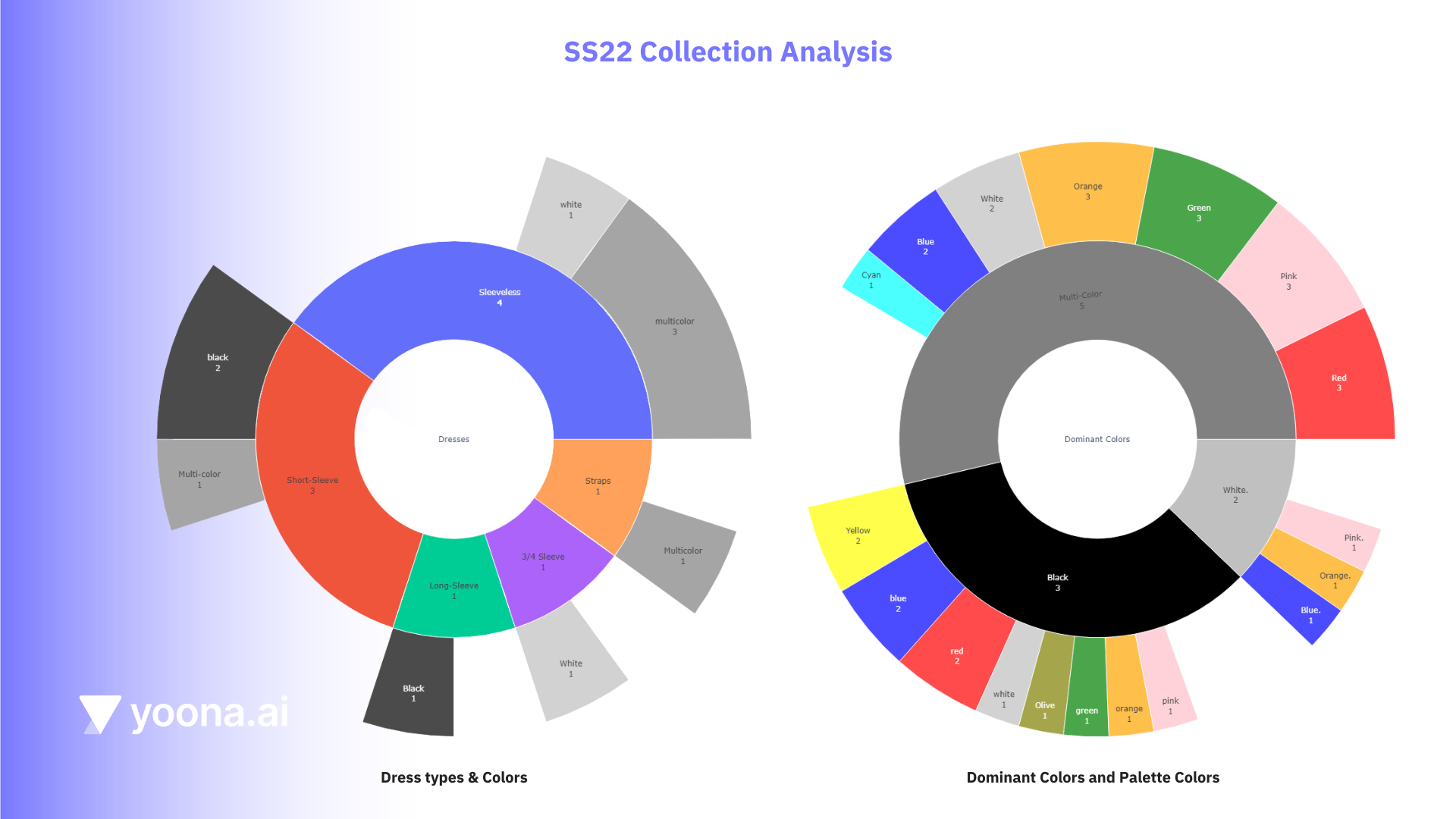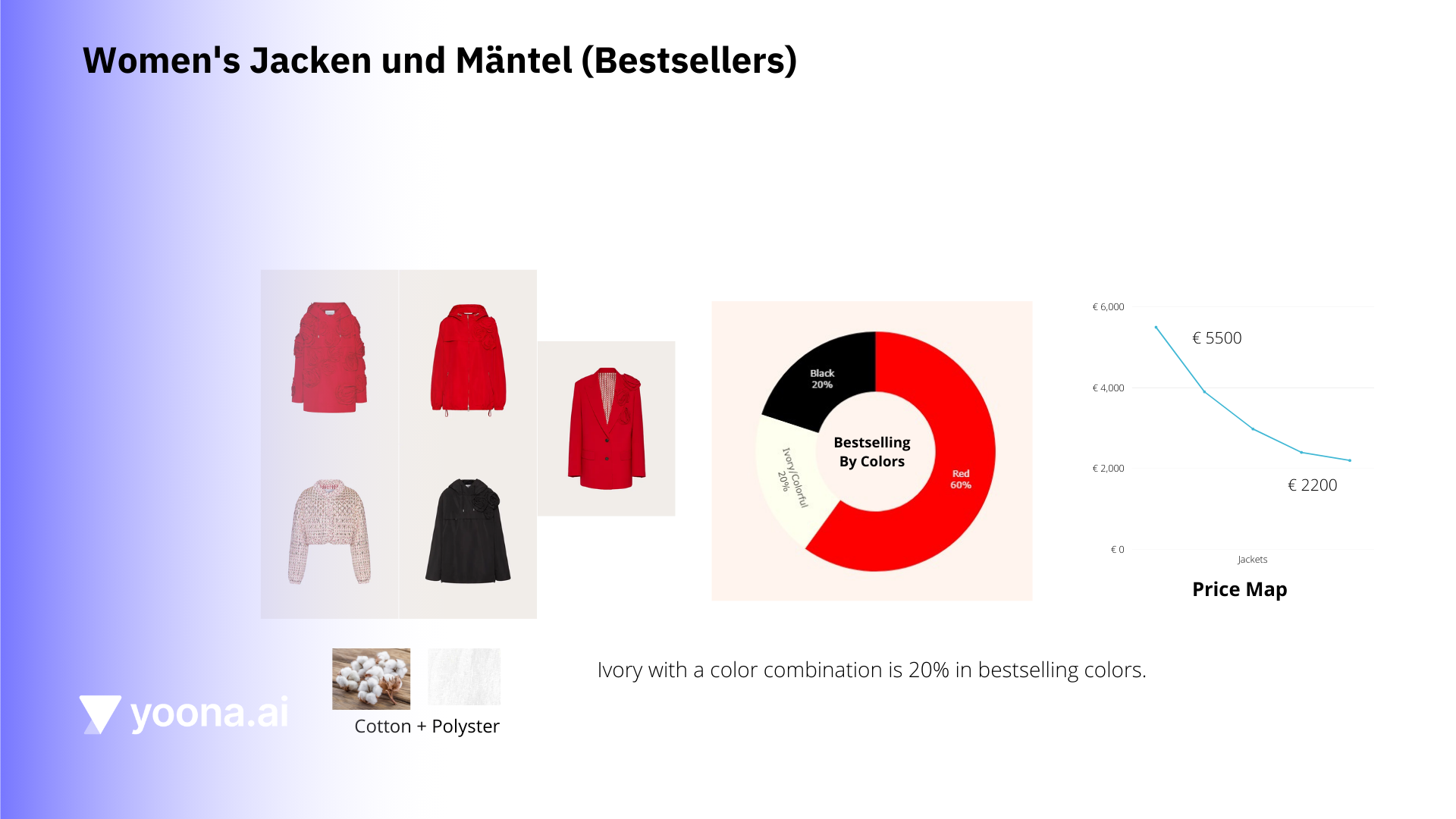🌿 Empowering Sustainability Through AI: 🌿
Yoona.ai's AI Design Tool -Humble Contribution
In a world where data and technology reign supreme, Yoona.ai, the AI tool which uses Generative AI & Machine Learning to make design easier, faster and smarter than ever for the Fashion industry, stands at a crucial crossroads. The power to illuminate the state of our environment and arm decision-makers with the tools they need to make informed, science-based choices lies within its grasp.
Today, we shine a light on two pivotal events that have the potential to reshape the future for the better.
1. Towards A Big Data Revolution for the Planet" Expert Meeting
From September 11 to 13, Vienna played host to a remarkable gathering - the "Towards A Big Data Revolution for the Planet" expert meeting. This collaborative effort, orchestrated by the Data for the Environment Alliance (DEAL) in partnership with the United Nations Science-Policy-Business Forum on the Environment (UNSPBF), brought together brilliant minds from across the globe.
The discussions at this event were nothing short of groundbreaking:
✅ How can big data accelerate the achievement of the Sustainable Development Goals (SDGs)?
✅ Best practices and challenges in executing big data projects.
✅ Strategies for seamlessly integrating and sharing data across various sectors and disciplines.
✅ Ensuring the quality of data and its alignment with Environmental, Social, and Governance (ESG) standards.
✅ Identifying the technological needs and opportunities within the vast landscape of big data.
✅ Ensuring equity, justice, and equality in the realm of technology.
✅ Elevating transparency and accountability through the transformative power of big data.
Yoona.ai highlights the untapped potential within every company to actively engage in this transformative journey. “At Yoona, we've pioneered an AI Design Generator fine-tuned for the fashion industry for this very purpose.”
2. The 2023 SDG Summit
Happening right now, from September 18-19, 2023, in the heart of New York, is the 2023 SDG Summit. This event serves as a beacon of hope, where high-level political leaders provide guidance and inspiration, setting the world on a path of accelerated progress towards the 2030 Sustainable Development Goals.
How data is making the business case for sustainable fashion
55% of shoppers claimed sustainability was more important than value and quality
The more brands talk authentically and consistently about sustainability, the higher they’re perceived as trustworthy, high quality or innovative
Complete Consumer Insights, by Josh Ayto, Hayeon Kim
Unveiling the Hidden Impact of the Fashion Industry
The fashion industry represents an industrial sector whose harmful impact on our environment has tended to be neglected in the public discourse on environmental protection, climate change, and economic sustainability in recent years. This seems all the more surprising when one realizes that the apparel industry ranks second only to the oil industry as the world's largest polluter. When one takes into account the fact that garment consumption has increased by 40% over the past decade and that less than half of the textile goods that are no longer used are actually recycled, or only about 1% of them are used to make new garments, there is a growing understanding that urgent action is needed to increase sustainability in this important industry.
Yoona.ai asserts that in this context, the fashion industry as a fundamental part of the textile economy holds enormous potential that needs to be exploited for the sake of sustainable production and consumption.
In the following, it will be shown that in the development of collections, the first step in the value chain of the clothing industry, not only does the ecological context have to be thought of, but this is also accompanied by a substantial economic gain so that the drive to work sustainably offers advantages on several levels at once. Of course, the design process is only one step on the way to the garment. However, as a first step, enormous savings and sustainability potentials can already be realized here.
Key Data on the Environmental Impact - using yoona.ai AI Tool
To assess sustainability and efficiency, Yoona.ai established 6 criteria to measure the use of its technology compared to conventional collection development processes:
1. Energy Expenditures: In Germany, the energy consumption of the clothing industry is around 22,000 terajoules per year. This results in an average energy consumption of around 1.833 MJ per garment. Using Yoona.ai's engine, about 300 assistants are trained for the 1,800 designs, resulting in an energy consumption of 4,545 kWh for the entire collection development process.
2. CO2 Consumption: The textile industry causes around 1.2 billion tons of CO2 emissions annually, significantly exceeding the combined emissions of international air and sea transport. The use of Yoona.ai technology results in significantly lower emission values, with potential savings of up to 93%.
3. Material Consumption & Waste Generation: In the course of the production of a shirt, between 20% to 25% of waste occurs. The introduction of digital design processes allows for the almost complete elimination of material waste.
4. Water Consumption & Pollution: The production of a cotton T-shirt weighing about 250 grams consumes an average of 2,500 liters of water. With the use of Yoona.ai technology, there is no need for physical pre-products, resulting in a potential saving of 18 million liters of water.
5. Time: The design development process carried out in conventional ways takes on average between 3 and 12 months. In contrast, the use of Yoona.ai technology significantly reduces this time frame, enabling the development of an entire collection in just over 2 days.
Whole Sustainability Report Yoona.ai AI Fashion Design Tool
Unlocking Sustainability with Yoona.ai
The use of yoona.ai's AI tool enables companies based in the apparel industry to significantly increase their sustainability.The use of yoona.ai’s AI Design Generator not only makes a fundamental contribution to reducing pollutant and greenhouse emissions but also results in considerable financial savings potential due to significant time savings, greater flexibility in collection development, and the significantly lower use of resources, which ultimately lead to significantly higher profit margins.
The potential savings indicated in the course of the above considerations are, of course, initially theoretical values based on the parameters available for T-shirts. Nevertheless, they also allow an estimate to be made for other items of clothing and enable textile companies to establish benchmarks that can be used to extrapolate resource and emission savings. Even under highly conservative scenarios, the savings when using Yoona.ai’s AI Clothing generator, especially of CO2 and environmentally harmful chemicals, are still significant.
The use of Yoona.ai AI Tool- thus enables companies in the textile industry to use appropriate means in the transformation process towards more ecologically sustainable production of garments while increasing profit margins.
Yoona.ai is committed to catalysing positive change in the fashion industry and beyond, and their AI-based software is a powerful tool in the quest for a more sustainable and environmentally friendly future.








